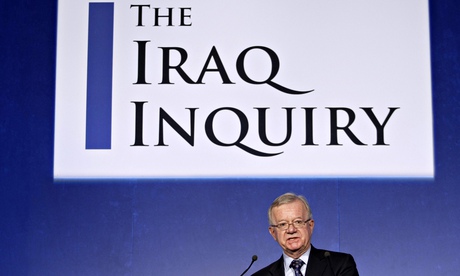Key factors compound Chilcot inquiry delay

At the Scott inquiry into the export of defence and dual-use equipment to Iraq, we too were criticised for delay. The parallels with the debate over publication of the Chilcot report are plain (Editorial, Letters, 22 January). In that regard, are the criticisms well-founded? The proper conduct of any independent public inquiry will be driven by key factors. First, effectiveness. An inquiry is under a duty to consider the evidence objectively and impartially. It must draw defensible conclusions, based on the evidence (and not speculation), and must make responsible recommendations. That can take time. At the Scott inquiry, there were many reasons for the three-year time lapse between the inquiry’s establishment and publication, including the breadth of the terms of reference and the failure to submit evidence to the inquiry in good time.
Second, fairness. Where someone’s personal interests are likely to be affected adversely by publication, the person must be given a reasonable opportunity to comment. The inquiry must take such comments into account in an open-minded, objective way. That too takes time if it is to be meaningful.
Third, the timeliness of publication. A balance inevitably has to be struck between the requirements of speed and of other aspects of the public interest. That includes the proper protection of individuals’ interests, of national security and of intergovernmental relations.
There may be one salient difference between the powers conferred on the Scott inquiry and on the Chilcot inquiry. Sir Richard Scott was given the right to publish whatever he considered relevant and necessary. He took the final decisions on disclosure and publication, subject, of course, to full consultation with the authorities. That consultation was lengthy.
In respect of publication and disclosure, Sir John Chilcot’s powers appear to be more limited. For example, under paragraph 15 of the protocol agreed between the inquiry and the government, the cabinet secretary has the final say on disclosure where the inquiry and the government cannot agree. The cabinet secretary’s involvement is necessary since disclosure will encompass the papers of a previous administration. Moreover, unlike Scott, it seems to be the government, not the inquiry, that will determine the date of publication, although I doubt whether the final report would be delivered to the government until the inquiry is given a firm publication date.
Christopher Muttukumaru
Formerly secretary to the Scott inquiry
Christopher Muttukumaru
Formerly secretary to the Scott inquiry
No comments:
Post a Comment